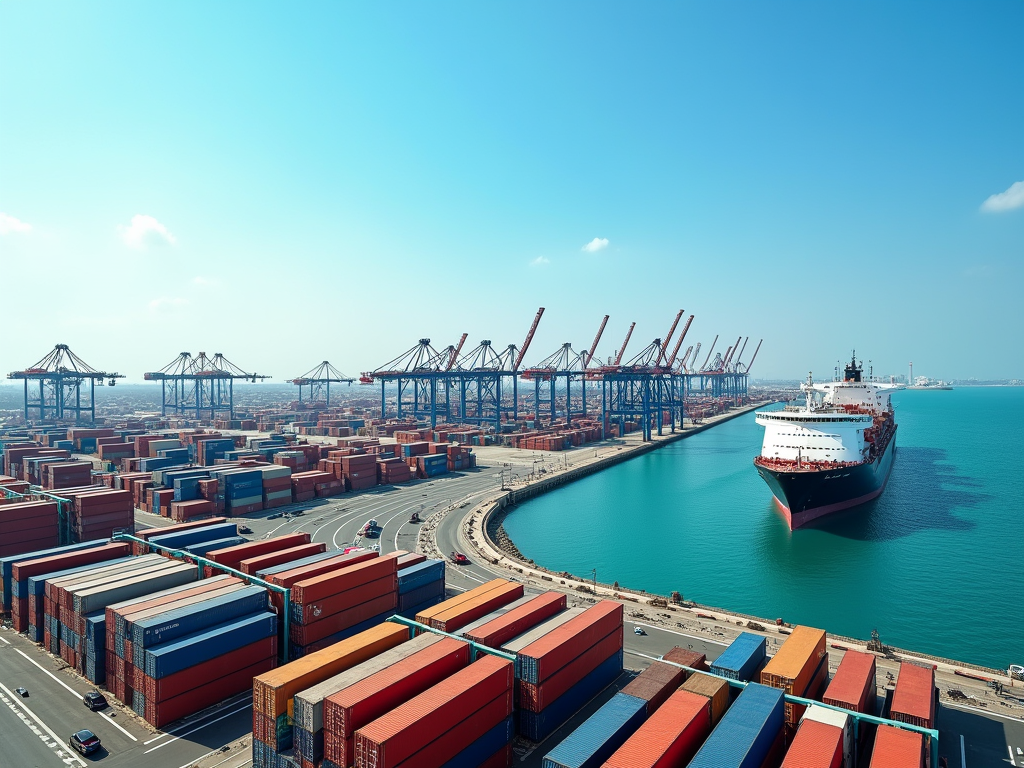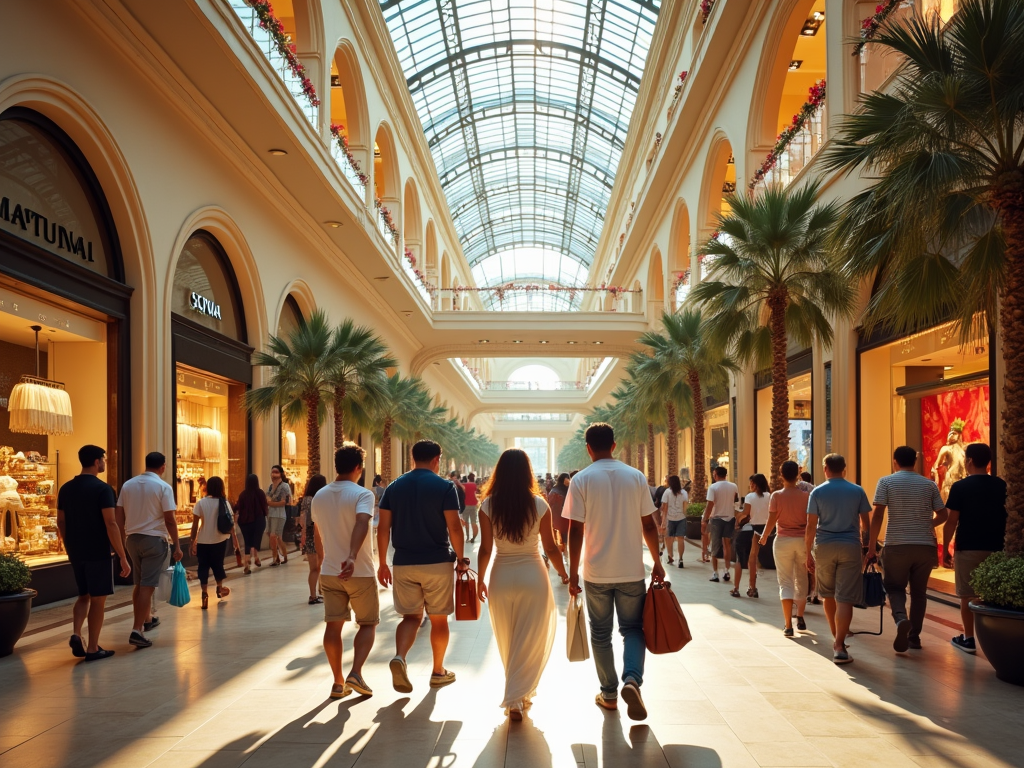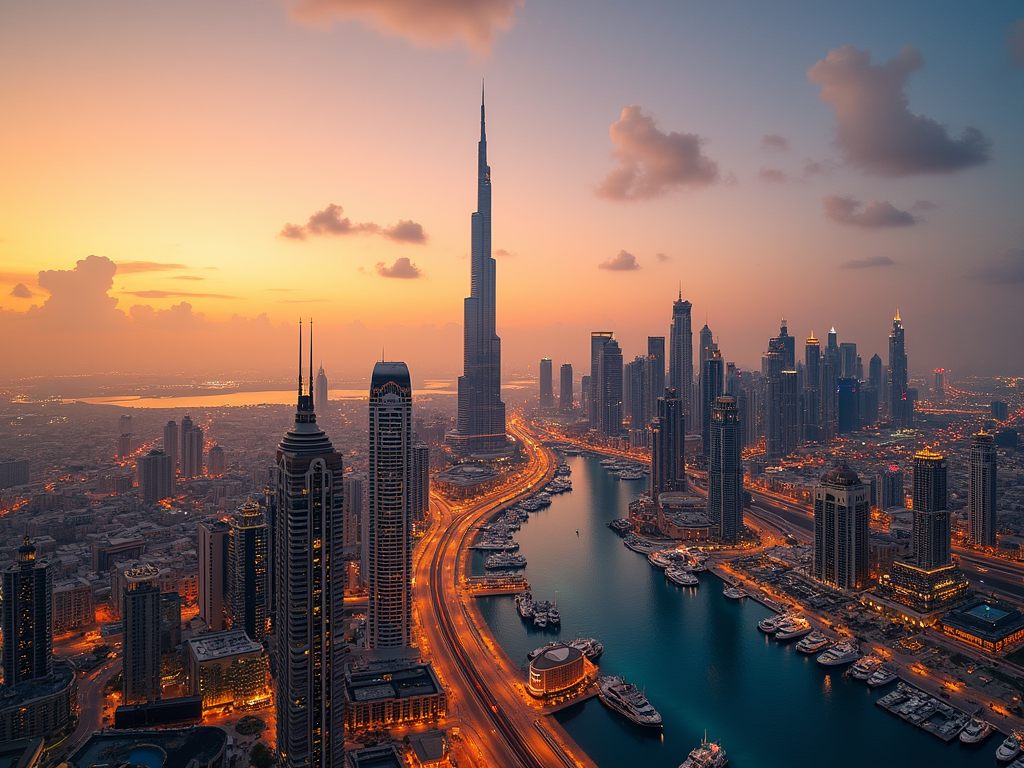The Role of Dubai’s Economy in Shaping Global Market Trends
BusinessDubai has emerged as a vital economic hub in the Middle East, playing a significant role in shaping global market trends. Its strategic location, robust infrastructure, and a diversified economy have made it an attractive destination for businesses and investors. This article explores the various facets of Dubai’s economy, highlighting its impact on international trade, tourism, and financial services, as well as examining how it influences market dynamics on a global scale.
Dubai as a Global Trade Hub

Dubai’s economy is primarily driven by its strategic geographical location; it serves as a gateway between the East and the West. This unique positioning has facilitated international trade and commerce, making it a significant player in global supply chains. The following elements contribute to Dubai’s status as a trade hub:
- Port Infrastructure: The Port of Jebel Ali is one of the largest and most advanced container ports in the world, accommodating vast volumes of goods and facilitating rapid shipping times.
- Free Trade Zones: Dubai has established several free trade zones that offer businesses tax exemptions and full ownership rights, attracting numerous multinational corporations.
- Logistics and Transportation: The city boasts world-class logistics facilities, including Dubai International Airport, which is among the busiest airports globally, enhancing cargo transit and connectivity.
As a result, Dubai has positioned itself as a central hub for global logistics and trade, drawing businesses from various sectors, including retail, manufacturing, and technology.
The Influence of Tourism on Dubai’s Economy

Tourism is another cornerstone of Dubai’s economy and plays a pivotal role in shaping market trends. The emirate attracts millions of visitors each year with its luxurious resorts, shopping malls, and cultural experiences. Factors influencing the tourism sector’s growth include:
- Diverse Attractions: From the Burj Khalifa to the Dubai Mall, a variety of tourist attractions entice travelers, boosting spending in the hospitality sector.
- Events and Conferences: Dubai hosts numerous global events and exhibitions like the Dubai Shopping Festival and Gitex Technology Week, which draw international attendees and enhance the city’s profile.
- Luxury Offerings: The city’s focus on high-end tourism presents opportunities for businesses in luxury goods, real estate, and exclusive services.
Consequently, the tourism sector creates a ripple effect that stimulates other sectors of the economy, from retail to services, ensuring balanced growth and diversification.
Dubai’s Financial Services Sector
The financial services sector in Dubai is one of the fastest-growing areas, contributing significantly to the emirate’s GDP. It includes banking, insurance, and investment services tailored to meet the needs of a diverse clientele. Key features of this sector include:
- Dubai International Financial Centre (DIFC): This financial hub provides a platform for financial service firms to operate under a robust regulatory framework, attracting global capital and expertise.
- Innovative Financial Products: Dubai’s financial institutions offer a variety of innovative products, including Islamic banking services that cater to both local and international investors.
- Regulatory Stability: The emirate’s commitment to maintaining a stable regulatory environment fosters confidence among international investors, encouraging long-term investments.
Through its financial services, Dubai has become a critical player in the flow of global capital, fostering economic collaboration and international investment opportunities.
The Emerging Tech Landscape in Dubai
As part of its vision for 2021 and beyond, Dubai is investing heavily in technological innovation, fostering growth in the tech sector. The government’s initiatives support startups, research, and development, aiming to position the emirate as a leader in tech and innovation. Crucial aspects include:
- Smart City Initiatives: Dubai aims to become the world’s smartest city, leveraging technology to enhance urban living and sustainability.
- Startup Ecosystem: The establishment of incubators and accelerators supports burgeoning tech companies and encourages entrepreneurship and innovation.
- Blockchain Investments: Dubai aims to integrate blockchain technology in various sectors, including real estate and finance, enhancing transparency and efficiency.
These innovations not only contribute to local economic growth but also position Dubai as a global hub for technology and innovation, attracting talent and investment from around the world.
Conclusion
Dubai’s economy significantly influences global market trends through its robust trade networks, thriving tourism sector, evolving financial services, and cutting-edge technology investments. As a dynamic and strategic economic hub, the emirate continues to attract businesses and tourists alike, shaping the future landscape of international commerce. By fostering a diverse and resilient economy, Dubai has established itself as a vital player in the global market, setting trends that resonate beyond its borders.
Frequently Asked Questions
1. What is the primary driver of Dubai’s economy?
The primary driver of Dubai’s economy is its diversified sectors, including trade, tourism, and financial services, with a significant emphasis on international trade and logistics.
2. How does tourism impact Dubai’s economy?
Tourism significantly boosts local spending, stimulates job creation in the hospitality sector, and drives economic diversification, impacting various other sectors.
3. What role does the Dubai International Financial Centre play?
The Dubai International Financial Centre provides a regulatory framework that attracts global financial firms, enhancing investment opportunities and capital flows.
4. How is Dubai promoting technological innovation?
Dubai is promoting technological innovation through smart city initiatives, funding for startups, and adopting cutting-edge technologies like blockchain in various sectors.
5. Why is Dubai considered a global trade hub?
Due to its strategic location, advanced port infrastructure, free trade zones, and logistics capabilities, Dubai is recognized as a crucial hub for global trade and supply chains.
